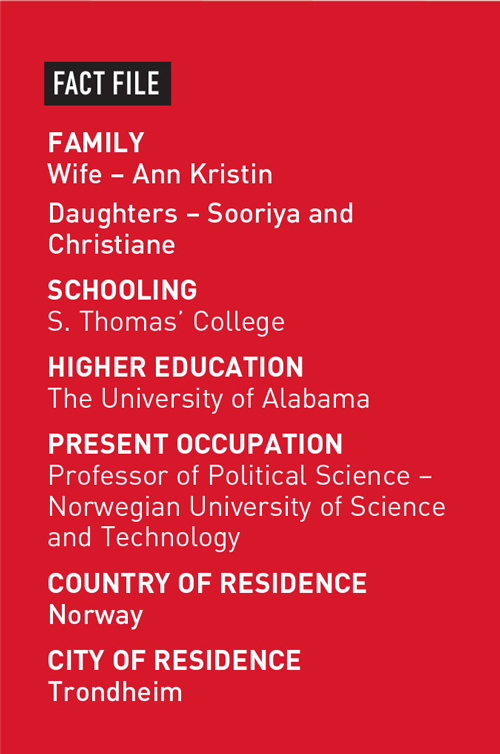Prof. Indra de Soysa
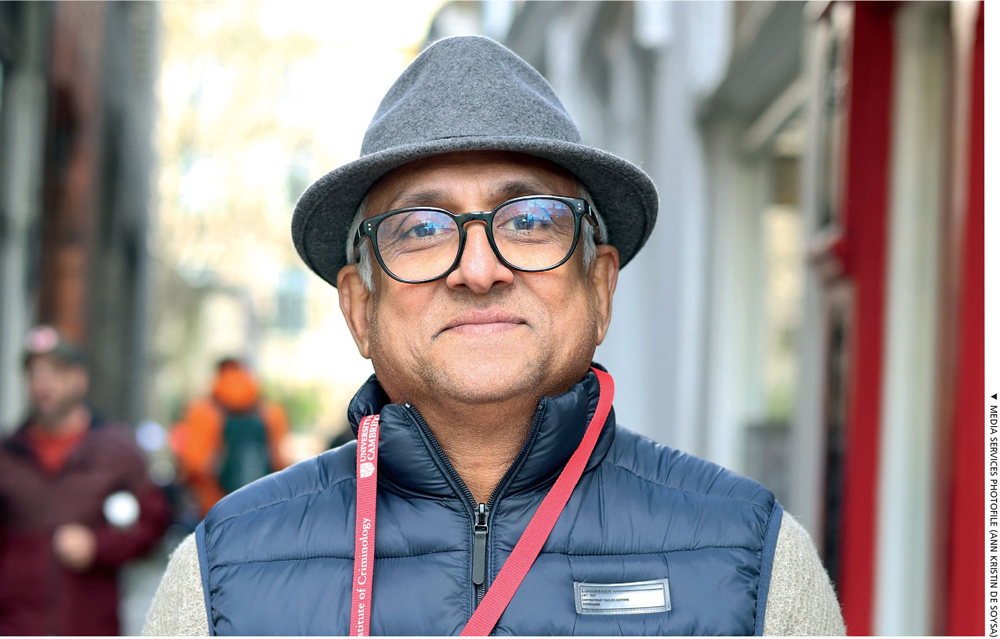
A Professor of Political Science at the Norwegian University of Science and Technology, Indra de Soysa’s interests lie in the field of political economy as well as comparative politics, globalisation, human rights and Third World studies to name a few.
Born in Sri Lanka and educated at S. Thomas’ College, he left the island to pursue his education upon completing of his A-Levels in 1985.
After earning a PhD in Political Science from the University of Alabama, de Soysa worked at the Peace Research Institute in Oslo (PRIO). And following a short stint at the University of Bonn, he returned to Norway.
Presently, de Soysa is a visiting fellow at the University of Cambridge, serves as a member of the Royal Norwegian Academy of Science and Letters, and sits on the editorial boards of several international journals.
In this exclusive interview with LMD International, he discusses the relationship between international trade and security, the state of the bilateral relationship between Norway and Sri Lanka, and his thoughts on the island’s sociopolitical situation.
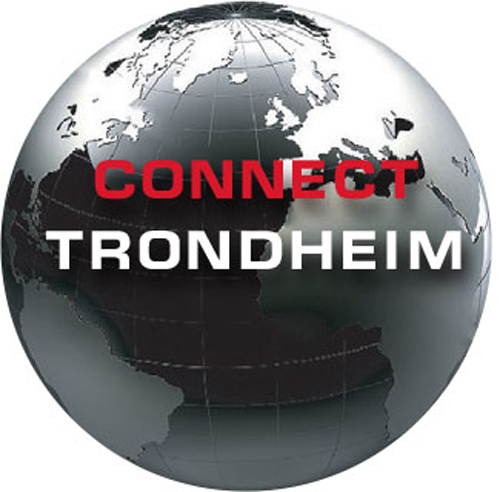
Q: Has your connection with Sri Lanka influenced your academic research in political science – and if so, how?
A: Absolutely! When I took up the study of political science, the civil war in Sri Lanka, and questions of economic and political development, were at the top of my mind. These were certainly the major questions that drove my curiosity and they still motivate my research foci.
Q: How do you view the relationship between international trade and security?
A: My dissertation director Prof. John Oneal is one of the foremost researchers on the idea of liberal peace.
This concept suggests that economic contact between people generates interdependence, which in turn produces greater incentives for cooperation and peaceful relations between states. Trade is also very tightly connected with economic growth and development, which is thought to indirectly foster peace within states.
You can have peace without prosperity – Cuba and North Korea don’t have conflict – but peace with prosperity is a far better option.
Rather than trade, I prefer to focus on good institutions, which also facilitate trade. They also facilitate competitive markets that ultimately foster sustained development and peace.
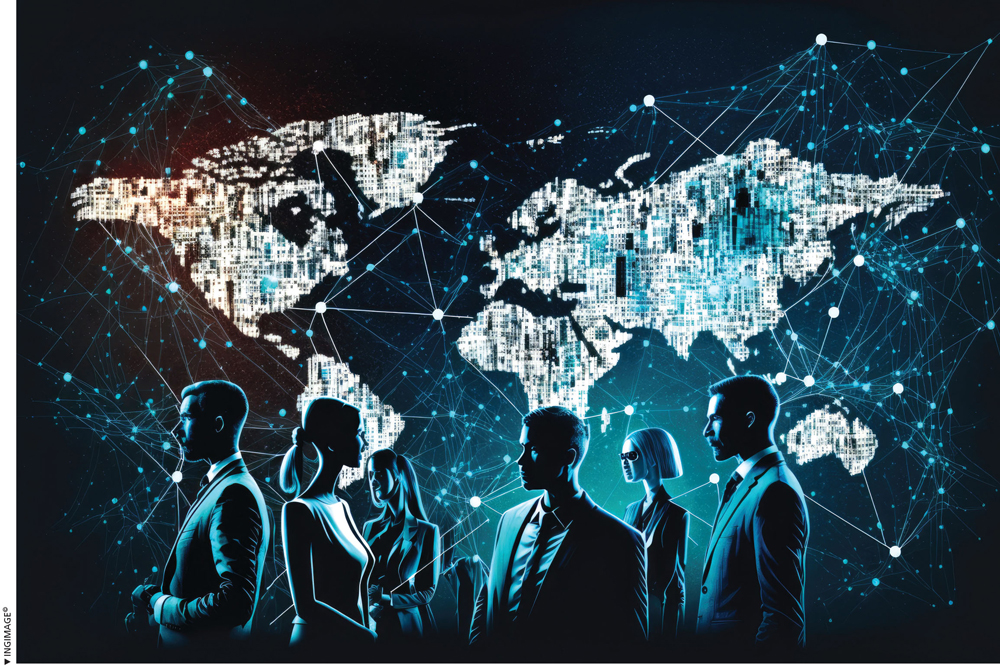
Q: In terms of economic and trade relations, what is the status of the bilateral relationship between Norway and Sri Lanka – and are there any notable agreements or initiatives that have strengthened economic ties between the two countries?
A: Norway is fairly open to trade because it’s a comparatively small market relative to other areas such as the EU.
More initiatives are needed to foster even more trade between Norway and Sri Lanka. I don’t have exact numbers and Sri Lankan exports to Norway may be limited, but the high-tech areas of computer programming and so on are potentially lucrative markets moving forward.
Norway is a cash-rich but labour-poor country; so if we’re smart, we should be thinking of ways to attract Norwegian business to Sri Lanka in the form of direct investments to generate jobs.
However, I return to better institutions and political stability if we are to capitalise on attracting foreign investments from economies such as Norway.
Q: And how does the political and international relations dynamic between Norway and Sri Lanka fit into Norway’s broader foreign policy objectives and strategies in the South Asian region?
A: Norway’s involvement in the peace process in Sri Lanka came out of an overall foreign policy strategy to use its wealth and reputation as an objective promoter of peace and development (small military power, no colonial history and no geopolitical ambitions).
Remember that this came on the heels of the Oslo Accords and more, which were seen as massively successful.
Norway is the only industrial power that comes close to the one percent of GDP target for giving aid. Sri Lanka has an advantage in that it’s democratic and situated close to India, increasing its attractiveness.
Apart from holidaying in the sun, Sri Lanka is mostly unimportant to countries like Norway as much as we would like to think otherwise.
Q: Could you elaborate on your involvement with the Royal Norwegian Academy of Science and Letters – and your roles on editorial boards? How have these experiences influenced your approach to research and academia?
A: These affiliations are very important because they not only provide you with a mark of respect and some distinction but also expose one to the cutting edge – the frontiers of research and best practice.
Q: Could you shed some light on the state of international politics, and the key challenges and trends in this sphere?
A: This is a large and broad subject, but my general feeling despite the news is that globalisation has made the world safer and more prosperous.
Yes, during the Cold War era, there was no conflict close to Europe but the superpowers fought very hot wars around the world and had their fingers on the nuclear buttons. We might think that the world is getting worse due to the 24 hour news cycle.
When a hegemon like the US is waning in power and others such as China are rising, then we’ll have some instability. This requires that the current great powers cooperate within existing institutions like the UN.
Q: Your work has delved into issues related to human rights and Third World studies. Can you explain the significance of these topics in the contemporary global context and the implications of your research findings?
A: Again, these are broad issues; and what I’ve researched and written about are rather narrow slices. I also owe much to my collaborators, some colleagues and many students.
I’m quite proud of my peace research where I used hard data and theoretical reasoning to argue that civil war and political violence was more likely in countries with abundant natural resources. These insights led to new ways to understand why rebellion forms.
Currently, I am at the Department of Criminology at the University of Cambridge, addressing criminological theory critically on the causes of interpersonal violence.
Apart from this area, understanding the consequences of globalisation and so on were personally satisfying – and hopefully, this inspired others.
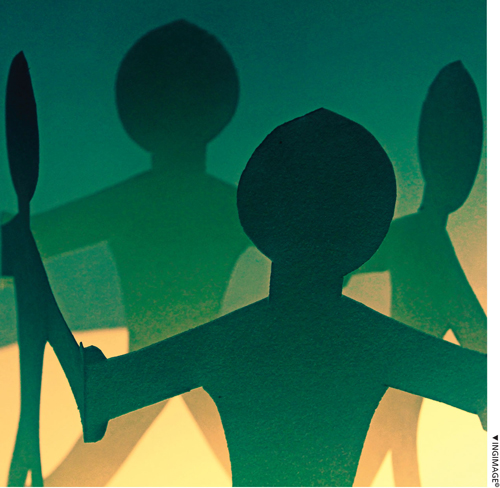
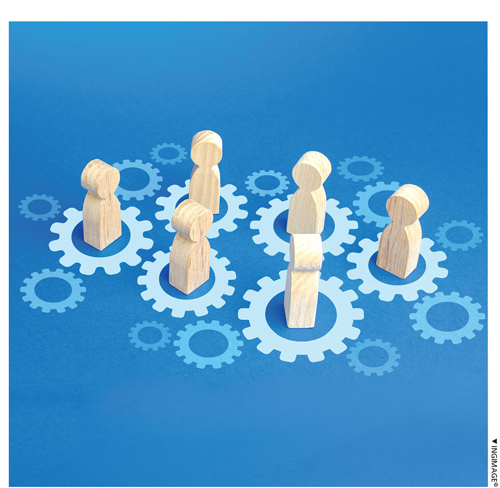
Q: Could you offer advice to aspiring political scientists on how to succeed in their careers and make a meaningful impact in this field?
A: Do research on what interests you. Read broadly and deeply. Be curious and attentive to details. You have to publish your papers in international journals.
Q: As someone living beyond Sri Lanka’s shores, how do you stay informed about the country’s events and developments? And what are your thoughts on the prevailing sociopolitical situation in the island?
A: This is another broad issue. Like others, I stay informed by reading things on the internet or in specialised publications.
My feelings about the way ahead for Sri Lanka is not to allow the crisis to go to waste. This is the perfect time for making political and policy reforms that would put the country on a firmer path to growth and development.
First, the rule of law has to be maintained fiercely. Secondly, we should make reforms in line with IMF recommendations, however politically painful they might be.
Our commercial elite must build up their presence in the political landscape in an independent and active manner. And our institutions should be inclusive with greater checks on the abuse of power and privilege.
We must become a goods making economy rather than a deal making one. Goods are made through market fundamentals and the productivity of labour while deals are made because of unfettered privileges.
The first approach increases human capital-based development and the latter increases inequality.


